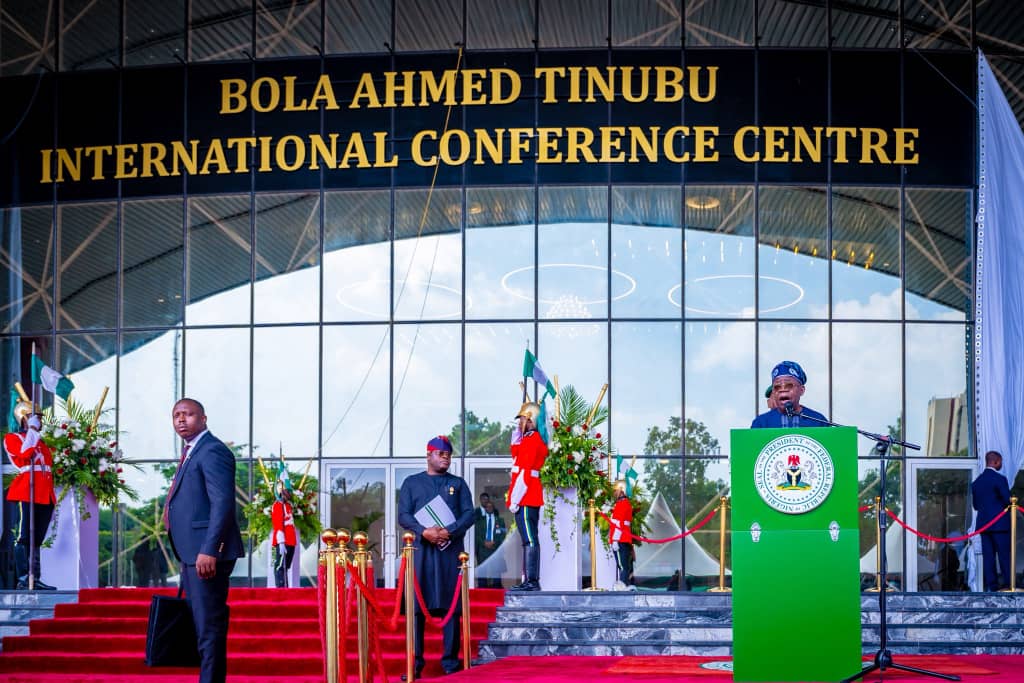
Daniel Otera
Amid questions over the state of federal infrastructure in Nigeria’s capital and growing pressure on internally generated revenue, the Minister of the Federal Capital Territory (FCT), Nyesom Wike, has renamed the Abuja International Conference Centre (ICC) as the Bola Ahmed Tinubu International Conference Centre.
The renaming, which took place during the formal inauguration of the rehabilitated facility on Tuesday, also included a rebranding of several internal halls after top government officials, Vice President Kashim Shettima, Senate President Godswill Akpabio, House Speaker Tajudeen Abbas, and Chief Justice of Nigeria, Justice Olukayode Ariwoola.
The project, originally completed in 1991 under a military government, had reportedly suffered decades of underinvestment. At the inauguration, Wike attributed the recent rehabilitation to President Tinubu’s leadership, stating that the transformation was achieved within eight months.
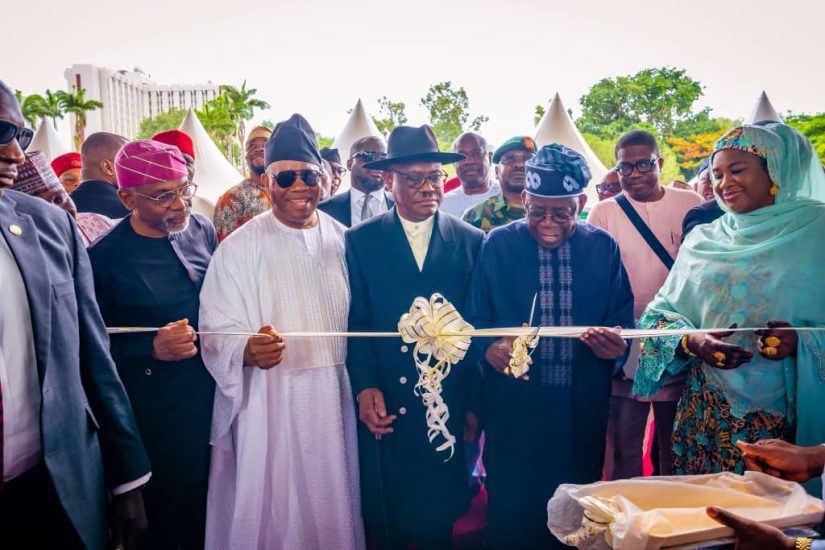
“Today, this Bola Ahmed Tinubu International Conference Centre can stand any other International Conference Centre,” Wike declared, while also announcing a shift to a paid model of usage for government agencies and ministries.
“Anyone wishing to use this facility must pay a fee… That is the only way it can be sustained,” he added.
The Abuja ICC has long been a key venue for diplomatic and high-profile national events. Although no public breakdown of the rehabilitation cost was provided at the event, the National Assembly has approved a ₦1.81 trillion budget for the Federal Capital Territory in 2025, with capital expenditure amounting to ₦1.31 trillion roughly 72.3 percent of the total.
This substantial allocation is aimed at addressing infrastructure challenges across the FCT.
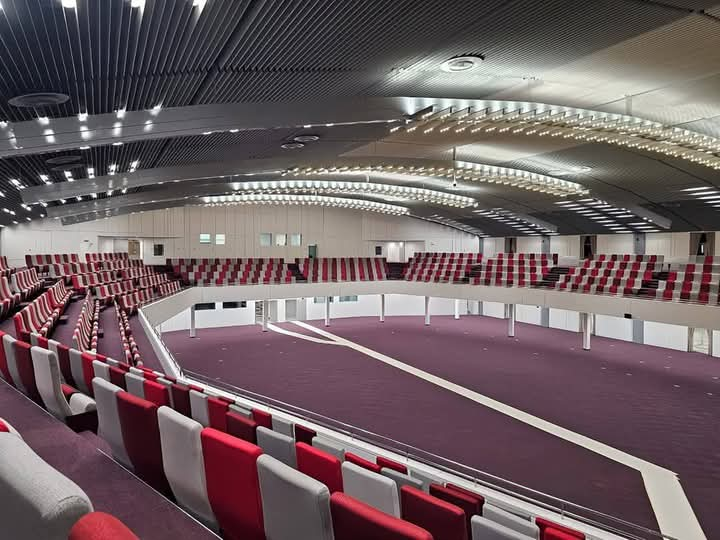
While the government has not released a detailed account of projects covered under this budget, the scope of capital expenditure points to ongoing upgrades of major public buildings, including the ICC.
Wike’s announcement that government ministries and agencies will now be required to pay to use the International Conference Centre marks a notable policy shift in the FCT’s approach to revenue generation.
According to the National Bureau of Statistics, the FCT generated ₦211.1 billion in Internally Generated Revenue (IGR) in 2023 more than the combined ₦206.23 billion IGR of all seven North-Western states.
This positions Abuja second only to Lagos, and highlights its strategic importance as a non-oil revenue hub.
Despite this impressive revenue haul, Abuja continues to face mounting infrastructural challenges. With a resident population of over 3.6 million and a daytime population that often swells beyond 6 million, pressure on the city’s public facilities is intense.
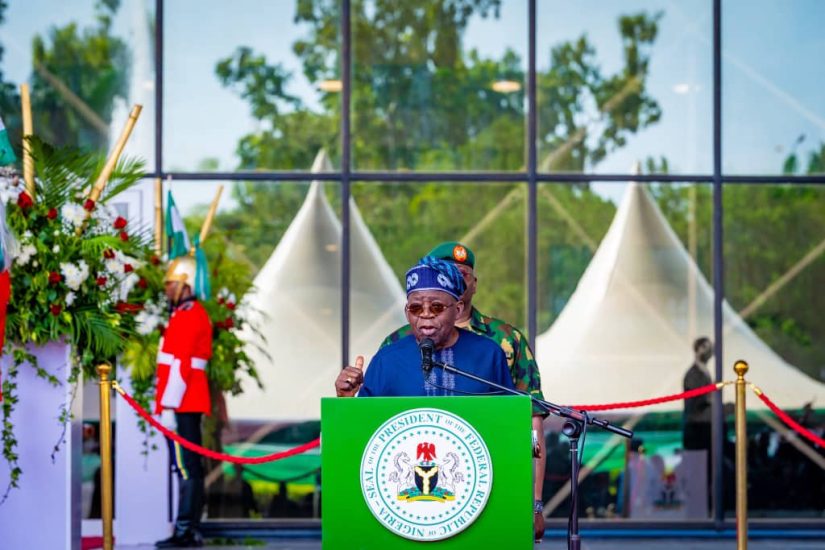

The city’s rapid expansion has heightened demand for sustainable infrastructure, with frequent concerns raised in public discourse about the long-term maintenance of key assets like the International Conference Centre.
Although the recent rehabilitation of the ICC marks a milestone, questions remain over how the FCT can sustainably manage such facilities amid rising urban demands and limited recurrent funding.
The decision by the FCT administration to introduce usage fees for ministries and agencies signals a policy shift aimed at improving maintenance and reducing dependency on federal subventions.
Although Wike said the decision to rename the facility was to honour contributors to the FCT’s progress, the move has attracted muted public reaction, particularly in light of the growing perception that Abuja’s urban development may be concentrating more on ceremonial upgrades than equitable service delivery.
The renaming of the centre and its halls appears to reinforce an emerging pattern of honouring top government figures through state infrastructure.
In 2023 alone, records show that more than 25 public facilities across federal institutions were named after sitting or past political office holders. Critics have long noted that this pattern often reflects political patronage rather than any measurable legacy of public service.
Despite the FCT Minister’s declaration of the ICC as a world-class facility, Abuja still lags behind Lagos in terms of hospitality infrastructure and conference-related commerce.
Data from the 2023 Nigeria Hotel Market Report indicates that over 60 percent of conference tourism and large-scale events in Nigeria remain concentrated in Lagos, which boasts higher international flight traffic, a broader range of luxury accommodation, and stronger private sector engagement.
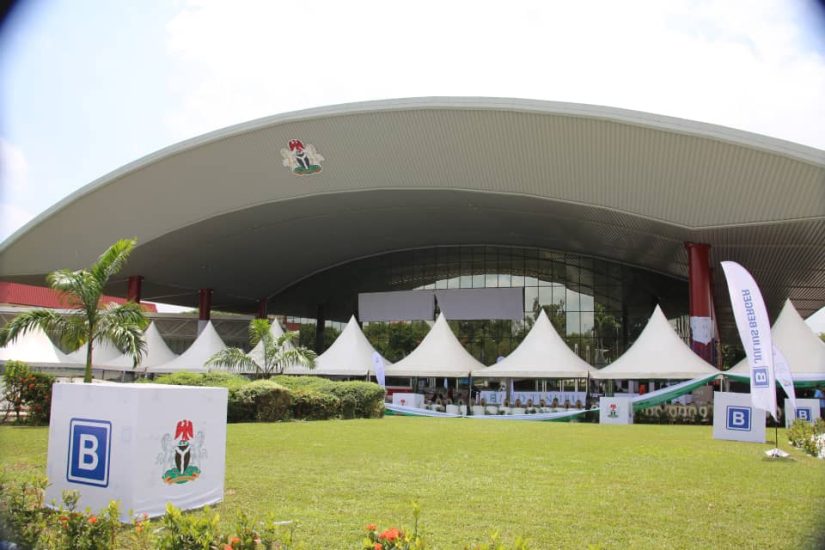
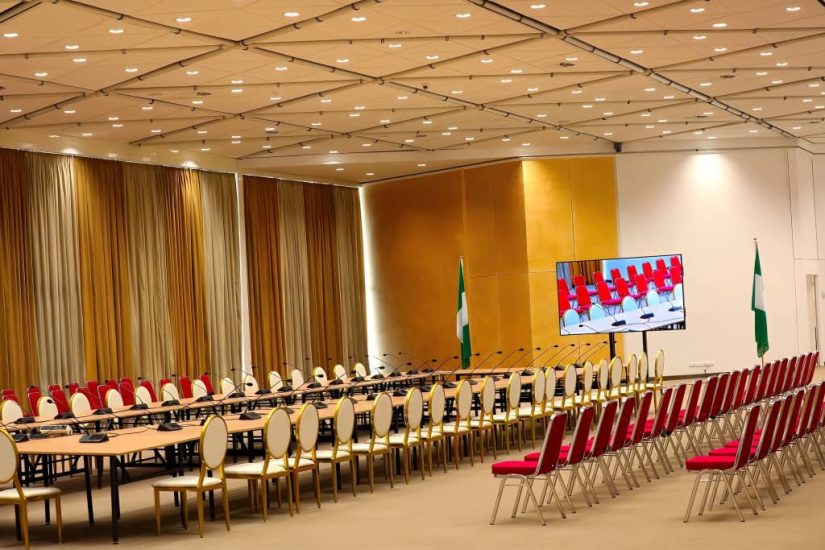
Whether the rebranded ICC will reverse Abuja’s limited appeal as a non-political event destination remains to be seen. As it stands, most major industry conferences, expos, and multinational summits continue to favour Lagos due to its logistical advantages and commercial ecosystem.
President Tinubu, who arrived at the Nnamdi Azikiwe International Airport at about 2:10pm on Tuesday, proceeded directly to the ICC inauguration after attending ECOWAS’ golden jubilee and Eid-el-Kabir celebration in Lagos
His appearance at the centre’s launch, coupled with Wike’s direct praise of his leadership, appears to signal a deliberate alignment between the presidency and the FCT administration ahead of future political consolidation.
